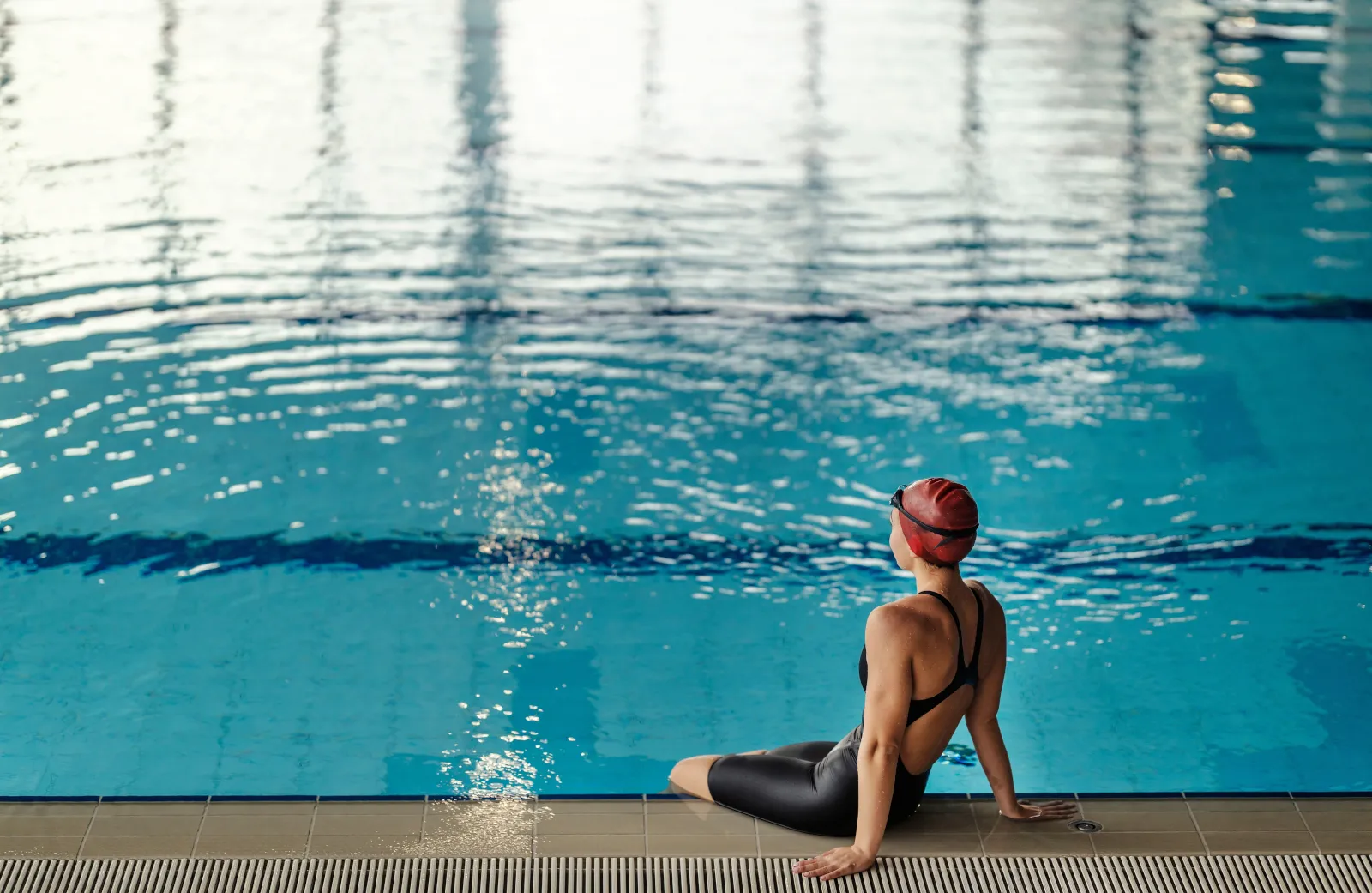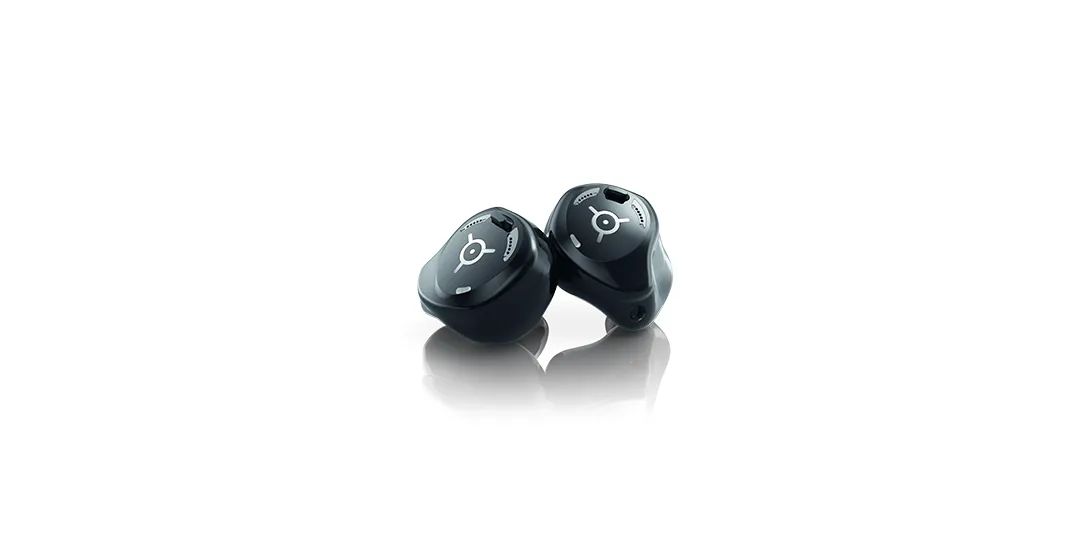Swimmer’s ear and how to prevent it

Swimmer’s ear and how to prevent it
6 min.
Publication Date: March 21, 2021
Article Updated: July 11, 2025
If you’re someone who spends their fair share of time in the water, then you should know the dangers of swimmer’s ear. Though its effects can start out mildly, letting swimmer’s ear continue unchecked can lead to more serious complications—including long-term ear damage and hearing issues.
Understanding exactly what swimmer’s ear is, what causes it, how to treat it, and—most importantly—how to prevent it is vital for keeping your ears healthy and safe all year round, whether you're a regular swimmer or just enjoy the occasional dip.
What is swimmer’s ear?
Also known as external otitis or otitis externa, swimmer’s ear is a bacterial infection that affects the thin layer of skin lining the outer ear canal. This canal runs from the opening of the ear to the eardrum and is vulnerable to infection when exposed to excess moisture, warmth, or irritation.
While bacteria are the most common culprits, swimmer’s ear can also be caused by fungal infections, especially in warm, humid environments. The name comes from the fact that frequent water exposure—like swimming or bathing—can lead to water getting trapped in the ear canal, creating a moist environment where bacteria can thrive.
Common symptoms of swimmer’s ear
If you’re experiencing the following symptoms, it’s likely that you’re suffering from swimmer’s ear:
- Persistent itching inside the ear
- Clear or yellowish discharge
- Pain when touching or pulling the ear
- Redness or swelling around the ear canal
- A sensation of fullness or muffled hearing
- Swollen lymph nodes around the neck or jaw
Symptoms can range from mild to severe, and if left untreated, the infection may spread beyond the ear canal or cause damage to surrounding tissues.
What causes swimmer’s ear?
Because trapped moisture in the ear canal is a major risk factor, excessive water exposure remains the most common cause of swimmer’s ear. This doesn’t only happen from swimming—frequent bathing, showering, or even spending extended time in hot tubs, steam rooms, or humid environments can all increase your risk. When water lingers in the ear canal, it creates a warm, moist environment that allows bacteria or fungi to grow and trigger infection.
However, water exposure isn’t the only culprit. Swimmer’s ear can also develop due to irritation or injury to the ear canal’s delicate lining. For example, using cotton swabs, hairpins, or even your fingers to clean your ears can cause tiny scratches or abrasions. These small openings make it easier for bacteria to enter and cause an infection. Ironically, attempts to keep ears clean may actually make them more vulnerable, especially when natural earwax—which provides a protective barrier—is stripped away.
In some cases, existing skin conditions like eczema or psoriasis can compromise the skin of the ear canal and raise the risk of infection. Additionally, allergic reactions to jewelry, hair products, or hearing devices may irritate the ear and lead to inflammation, creating conditions that promote the development of swimmer’s ear.
Understanding that swimmer’s ear is caused by more than just water helps underline the importance of protecting your ears from both moisture and physical irritation. Being mindful of what goes into or near your ears is just as important as how often they’re exposed to water.
How can I prevent swimmer’s ear?
Fortunately, swimmer’s ear is preventable with a few proactive habits. If you frequently swim or are otherwise exposed to water, consider the following precautions to reduce your risk:
- Wear properly fitting earplugs while swimming, especially in untreated or open water.
- Avoid submerging your head in natural bodies of water with unknown cleanliness, such as rivers or lakes.
- After water exposure, tip your head side to side to help get water out of your ears.
- Use a soft towel to gently dry the outside of your ears after every bath, shower, or swim.
- Never use cotton swabs, fingers, or sharp objects to clean inside your ears—this can lead to micro-abrasions.
- Consider using alcohol-based ear drops (available over the counter) after swimming to help evaporate excess moisture.
By making these practices a regular part of your hygiene routine, you can significantly reduce your risk of infection and maintain better ear health year-round.
How is swimmer’s ear treated?
Although mild cases of swimmer’s ear may resolve on their own, it’s important to seek treatment if symptoms worsen or persist beyond a few days. Prompt care can help ease discomfort, speed recovery, and prevent complications such as chronic infections or hearing damage. Treatment options typically include:
- Prescription ear drops: These often contain a combination of antibiotics, corticosteroids, and anti-fungal agents to clear up infection, reduce inflammation, and relieve itching.
- Medical cleaning: If discharge or debris is present, your doctor may gently clean the ear canal to allow the drops to work more effectively.
- Oral antibiotics: In more severe cases, or if the infection has spread beyond the outer ear, oral antibiotics may be necessary.
- Pain relief: Over-the-counter medications like acetaminophen or ibuprofen can help reduce pain and inflammation during the healing process.
During recovery, it’s important to keep the ear dry—avoid swimming, don’t insert earphones or hearing aids, and consider wearing a shower cap while bathing. Most people see improvement within a few days of starting treatment, though full recovery may take up to two weeks.
If symptoms persist or recur frequently, it’s worth discussing long-term prevention strategies with a healthcare professional.
Protecting your hearing health
Swimmer’s ear may be common, but it’s also preventable and manageable with the right knowledge and care. Whether you’re heading to the pool, spending time at the cottage, or just taking extra-long showers, being aware of the risks—and how to reduce them—can help you avoid unnecessary discomfort and protect your hearing long-term.
If you’re dealing with frequent ear infections or recurring issues, it might also be time to talk to a hearing health provider. Persistent ear problems can affect your hearing and overall ear health, and early intervention is always best.



